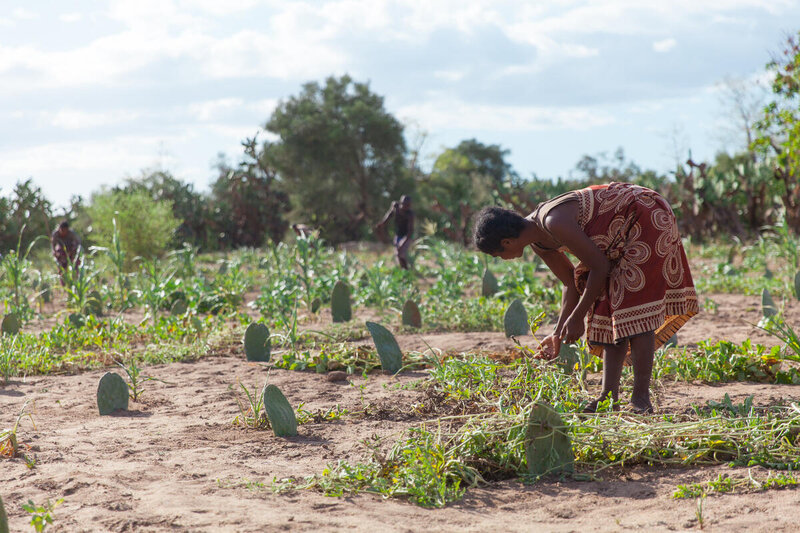THE Civil Society for Poverty Reduction CSPR says poor policies in agriculture, land administration and health sectors are frustrating the efforts of achieving Sustainable Development Goal No. 2 of zero hunger by 2030.
Poor agriculture, health policies cause of hunger, poverty – CSRP

Vandakope removing weeds in the field she shares with her farmers association in Tsarapioke. They grow cactus, corn, black eyed peas, pumpkins and melons. The plants are spaced one meter apart, following a WFP training. The plants are still young. Prolonged and consecutive droughts, poor crop production and COVID-19 restrictions continued to drive food insecurity in Madagascar. In southern Madagascar, back-to-back seasons of low rainfall have resulted in the severe drought, wiping out harvests. By April 2021, 70 percent of land in the South was impacted. The October-December 2021 period was the driest or second driest since 1981 across southern Madagascar. However, the rainfall forecast for January to April 2022 shows a normal to above normal level in the South. Five cyclones have hit Madagascar since January 2022, and next assessment will show if cyclones (in particular Emnati – end of February) brings needed rain in the South, without counterproductive affect (flooding and damage).
According to the December 2021 IPC report, food assistance and nutrition interventions have played a key role in containing acute food insecurity and significantly reducing acute malnutrition in the South. The 14,000 people previously experiencing famine-like conditions (IPC 5) have stabilized under the Emergency category (IPC 4). Nevertheless, the number of people requiring emergency food and nutrition assistance remains high as a total of 1.09 million people in Southern and South-Eastern Madagascar are projected to be food insecure (IPC 3 or above) by August 2022.
If the upcoming rains lead to a good harvest, WFP will be able to begin planning a long-term resilience programme for populations in the South with the Government and partners with the aim of scaling up its resilience activities to support smallholder farmers and communities in becoming more self-sustainable and resilient to shocks.
Sign Up For Daily Newsletter
Be keep up! Get the latest breaking news delivered straight to your inbox.
By signing up, you agree to our Terms of Use and acknowledge the data practices in our Privacy Policy. You may unsubscribe at any time.
- Advertisement -









